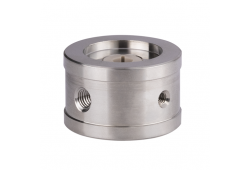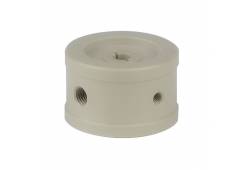LED20G Detectors Built-in
The LED20G Detectors with UV-VIS Light Emitting Diodes (LED) as a light source are built-in UV-VIS detectors for preparative and flash chromatography for use with an internal cell. It has excelent linearity up to 4AU and narrow spectrel half width.
Related variants
| Image | PN | Name | Number of channels (signals) | Basic wavelengths [nm] | Spectral half wirth [nm] | Request quote |
|---|---|---|---|---|---|---|
|
Image

|
PN
LEG02100
|
Name
LED20G Single UV-VIS Detector Built-in
|
Number of channels (signals)
1 fix wavelength
|
Basic wavelengths [nm]
254 or 280 (other on demaand)
|
Spectral half wirth [nm]
4
|
Actions
|
|
Image

|
PN
LEG02200
|
Name
LED20G Dual UV-VIS Detector Built-in
|
Number of channels (signals)
2 fix wavelengths
|
Basic wavelengths [nm]
254 and 280 (other on demaand)
|
Spectral half wirth [nm]
4
|
Actions
|
- Description
- Parameters
- Files to download 1
The LED20G detectors with UV-VIS Light Emitting Diodes (LEDs) as the light source are built-in UV-VIS detectors for preparative and flash liquid chromatography, where an external cell connected by optic cables is needed. The LED20G detectors use unique ECOM patented technology that significantly improves the performance of these LED detectors.
Why the ECOM LED20G series detectors have the best parameters on the market among LED detectors.
To explain the difference, the LEDs themselves typically have a peak wavelength tolerance of ± 5 nm and a spectral half-width of 10–20 nm. This is unacceptable for some applications, as e.g. FPLC, and it also causes nonlinearity. However, ECOM‘s solution allows narrowing the spectral bandwidth and selecting the exact wavelength from the LED-diode spectrum.
Key features and benefits of LED20G detectors:
• Sharp, high, and symmetrical spectral peaks thanks to ECOM-patented technology
• Excellent linearity
• Excellent price-performance ratio
• Compact device dimensions
• Low cell heating due to the LED´s low power supply (0.7 W) which allows use for peptide analysis or FPLC
• Higher sampling speed
• Sophisticated diagnostic software
• Diodes with wavelengths of 254 and 280 nm, other wavelengths available on request
| Number of channels (Signals) | 1 or 2 |
|---|---|
| Linearity | R² ≥ 0.999 up to 3.5 AU |
| Typical spectral half-width | 4 nm |
| Noise level at test cell (254 nm, TC 0.75 s) | ±10 × 10-6 AU |
| Drift at test cell (254 nm after 1 h) | 1 × 10-3 AU/hr |
| Communication | RS232 |
| Power supply | 12 – 24 V DC |
| Power input | 4 W |
| Wavelengths | 254 and/or 280 nm |
| Optical cables | yes |
| Cell connecting | External cell connected via SMA 905 connectors (ordered separately) |
| Dimensions W x H x D | 160 × 55 × 73 mm (6.29 × 2.16 × 2.87 in) |
| Weight | 0.65 kg (1.43 Ib) |
| Filename | Type |
|---|---|
| Info-LED20G-detectors-en-01.pdf | pdf (769,89 KB) |
Related products
PFC-Basic Series Preparative Cells, Stainless Stee..
PFC Stainless Steel cells are suited for TOY and BABY detectors. They are in three versions for 1/16"; 1/8"and 3/16" tubing.
PFC-Basic Series Preparative Cells, PEEK
PFC PEEK cells are suited for TOY and BABY detectors. They are in three versions for 1/16"; 1/8"and 3/16" tubing.



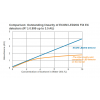
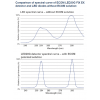
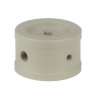
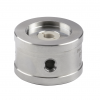


-60x60-2-0-0-ffffff.png)


